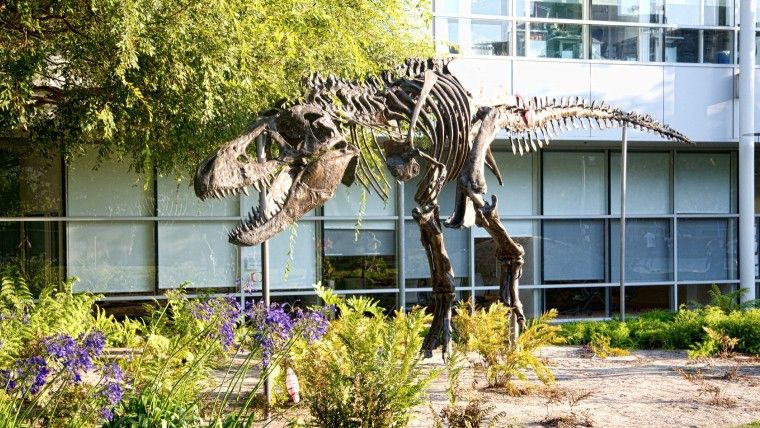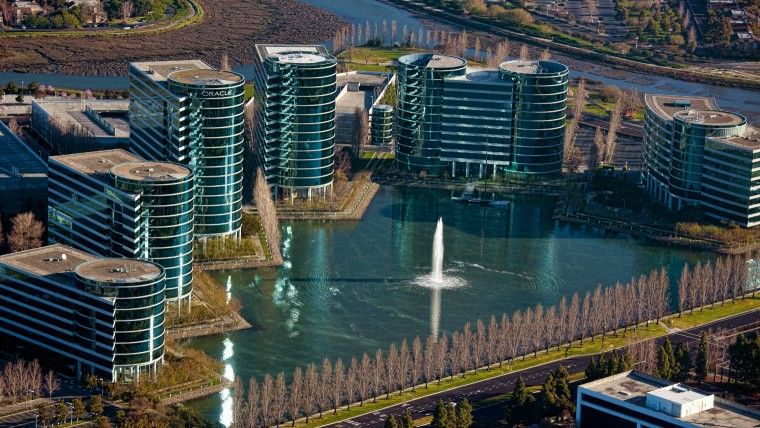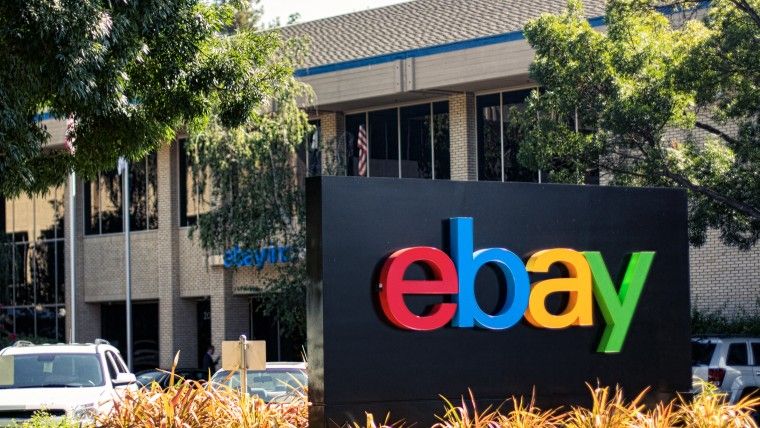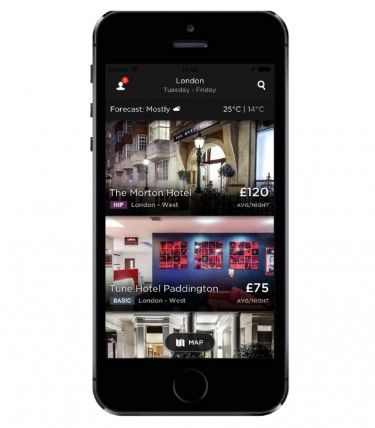Once a small, niche scene in the garages and basements of Silicon Valley, the internet industry has now penetrated almost every business in every US city and state from Seattle to New York to Miami to Austin, Texas.
Even Montana, a mountainous state with a population of just over a million, has taken claim to the title of “number one state for startup activity”, according to the annual Kauffman Index of Entrepreneurial Activity in 2013.
US-based technology giants, such as Amazon, Apple, Facebook, Microsoft, IBM, Google, eBay and Twitter, have paved the way for a supported ecosystem rich with venture capital, incubators, accelerators, mentorship programmes, co-working spaces and media platforms to support an infrastructure that spawns thousands of new startups year after year.
The importance of successful acquisitions and exits as a key driver in a healthy startup ecosystem cannot be overstated. For example, when the Silicon Valley-based startup PayPal was acquired by eBay for $1.5 billion, a group of PayPal employees now known as “PayPal Mafia” emerged, who have since invested in and founded some of the most successful tech companies today, including LinkedIn, YouTube, Yelp, Yammer, Tesla and SpaceX.
Due in part to a healthy stream of successful exits, the US technology ecosystem is soaked in venture capital, the majority of which have taken place in California’s Silicon Valley. According to Crunchbase, since the start of 2009, venture capital firms have deployed $31.5 billion across 3,308 deals into Silicon Valley-based tech startups. The aforementioned tech superstars – Apple, Facebook, Microsoft – have all successfully set up shop in the UK, establishing London as their European headquarters and creating thousands of jobs in the process.
There are dozens of startups in the US with $1-billion valuations, including note-taking app Evernote, peer-to-peer housing startup Airbnb, cloud storage app Box, image-sharing site Pinterest and marketing app SurveyMonkey. These valuations are making company founders and investors overnight millionaires, and their employees comfortably well off too.
But before there are cries of another tech bubble, it’s important to look at the relative size of the markets that modern-day innovations, such as mobile devices, cloud computing, and social media, are creating and remaking. It seems that the sky is the limit when it comes to growth in the digital industries. In New York alone, more than 1,500 technology companies are hiring, according to madeinny.com.
INCUBATORS-ACCELERATORS
An important, if often controversial, factor of growth in the US technology ecosystem is its numerous incubators and accelerators, which support early-stage startups with investment often in exchange for 6 to10 per cent equity stakes. Top accelerators, such as Y Combinator and TechStars, have helped spawn hundreds of startups. TechStars, for example, which launched in London in 2012, has since graduated 21 companies, such as big data for pet’s VetCloud and finance for kid’s startup Osper.
For startups looking to build their company without incubation support, shared working spaces with access to education, mentorship and events are often enough support for founders and their teams. In New York, a city well known for its expensive rent, companies, such as WeWork and The Fueled Collective, offer young startups flexible, affordable and beautifully designed workspaces.
In October 2014, WeWork opened its doors in the UK with its first London co-working space. Meanwhile, The Fueled Collective will partner with the much-anticipated SecondHome, a shared workspace founded by Rohan Silva, the former senior policy adviser to Prime Minister David Cameron, and designed by award-winning architects SelgasCano.
Relative to the Amazons and Apples of the tech world, several smaller startups have found massive success in the US and subsequently expanded to the UK and beyond. The most rebellious of all, Uber, the mobile transportation app that has Germany and its Chancellor Angela Merkel flustered, entered UK territory in the summer of 2012. Uber has run into its own set of issues in London too. But while 12,000 protesting taxi drivers brought London to a standstill in June 2014, the app they were protesting about claimed an 850 per cent surge in sign-ups.
Other well-known US startups have had more seamless entries into the UK market. Twilio, a cloud communications company, and Stripe, a company that provides a way for individuals and businesses to accept online payments with a single line of code, have been welcomed with open arms by both local techies and the wider business community.
The internet industry is not a bubble – it’s a permanent fixture in our society, one that touches every part of our day-to-day lives whether we’re in the boardroom or the bedroom
Michael Schneider, chief executive of MobileRoadie, says he found US and UK business cultures to be similar when he expanded his self-service mobile app platform from LA to Shoreditch. “One stark difference I found was that ‘annual leave’ is definitely more of a thing in the UK than the US. People seem to really disconnect outside the office and especially on holiday compared to the US, which can be both a good and challenging thing,” he says. In the last four years, MobileRoadie has worked with One Direction, Everton, The Rolling Stones, The Beatles, Robbie Williams, Tech City and Founders Forum.
CROSSING THE POND
Other startups that have successfully crossed the pond include AppNexus, Fueled, Etsy, General Assembly, Startup Institute, TaskRabbit, Kickstarter and Percolate.
There are over 250 million people in the US with access to the internet and, out of the total population of 313 million, more than 65 per cent have access to mobile phones. The internet industry is not a bubble – it’s a permanent fixture in our society, one that touches every part of our day-to-day lives whether we’re in the boardroom or the bedroom.
As terms such as “Gen Y”, “digital natives” and “mobile-first generation” get tossed around, expect entrepreneurs, developers and marketers to gear their businesses to answer the demands of this rising generation. Those demands are immediacy, mobile first and social relevancy.
The hottest technology startups in the US answer every one of these demands. A new wave of media brands, such as Refinery29 and Elite Daily, are changing the way we read and share articles, and interact with online advertising and brands.
E-commerce is one of the fastest growing categories in business with apps such as Spring changing the way we shop from our phones. And when it comes to on-demand services, Shyp, a one-year-old San Francisco startup, is creating a lot of buzz. The app, which launches in New York City this month, enables anyone to take a photo of anything they want to dispatch. And within 20 minutes, someone is at the door, picking it up and sending it for the cheapest rates available to anywhere in the world.
INTO THE FUTURE
Looking forward, a day in the typical Millennial’s life may entail waking up with SHADOW, an alarm clock that enables you to record your dreams, catching up on Instagram, learning French with Memrise, a foreign language learning app, and finally rolling out of bed and ordering fresh juice from Postmates, an app that delivers whatever you want within an hour.
The Millennial will then check e-mail using Mailbox or Gmail, Facebook, Facebook Messenger, WhatsApp and maybe Twitter, and then read through their favourite news articles on Circa, a mobile-first news app, or catch up on articles they saved to Pocket, an app that lets you store articles to read later on mobile, web and desktop. Time to go to work? Time to call an Uber or a Lyft.
Millennials aren’t lazy. They are resourceful. If a Millennial can pay a TaskRabbit $50 to put together a piece of IKEA furniture that takes three hours, that is money and time saved in the Millennial’s eyes as they can spend their time on acquiring new users for their startup, blogging on Medium or deciding whether or not to buy stock in the upcoming Alibaba IPO (initial public offering).
The world of tomorrow is being built in San Franciscan living rooms and in the co-working spaces on Broadway. These new technologies will create new paradigms for how we interact with each other and businesses, both online and offline. But to build the companies of tomorrow, you have to live in the future today. And innovation must trump tradition at every turn.
FROM US TO UK AND BACK AGAIN
CASE STUDY 1: US TO UK
In June 2014, the San Francisco-founded startup HotelTonight celebrated its second anniversary in the UK. A beautifully designed mobile app, HotelTonight is for booking hotels, tonight.
Since setting up shop across the pond in 2012, London has become home to HotelTonight’s Europe, Middle East and Africa headquarters, which oversees its presence in 18 countries. Over the past year, the company reports nearly 400 per cent annual UK growth.
“When we decided to launch internationally and chose the UK as our first target, we didn’t quite know what to expect, but we knew we had a great product we wanted to share with the world,” says HotelTonight’s chief executive Sam Shank.
“Fortunately, we were welcomed with open arms. In just two years we’ve built a domestic demand for HotelTonight from British users that now look to us as the best way to book a hotel room from their mobiles at the last minute. I am very excited to see what lies ahead as we continue to add more UK destinations and increase our reach across the country – this is only the beginning for us in the UK.”
The HotelTonight team personally vets and partners with a myriad of hotels, such as The May Fair, Belgraves Hotel, Haymarket Hotel and Ham Yard, to meet a wide variety of customer needs, from high design-minded to more economically feasible options. HotelTonight offers last-minute bookings in 20 destinations across the UK, including London, Manchester and Bournemouth.
CASE STUDY 2: UK TO US
We use apps to find to new music, reserve new restaurants and even book beach holidays. But when it comes to deciding what to do on a night out? We’re left sending text messages to our friends.
After finding a solution to this problem, British actor and writer Stephen Fry sent out a tweet in December 2012, “YPlan – now that’s a seriously good app. Last-minute events of all kinds booked in seconds. Free and damned smart.”
Shortly after, the startup YPlan exploded on the London scene, giving consumers a more spontaneous way to enrich their social lives through their mobile app, while giving event promoters a new way to reach young consumers. According to YPlan, 90 per cent of its events are sold in the last 48 hours before an event.
Following 300,000 downloads in the spring of 2013, YPlan raised $12 million from investors General Catalyst Partners, Wellington Partners and Octopus Investments to enter the US market, with New York City first on the list.
Just over a year later, YPlan has worked with 10,000 events and 800 event partners across London, New York, San Francisco, Las Vegas and Edinburgh, and has been downloaded more than a million times.
“Now that we have an established footprint in the US, we want to focus on going deeper with our curation and expanding our reach to new audiences in New York and beyond,” says YPlan’s founder and chief executive Rytis Vitkauskas.


INCUBATORS-ACCELERATORS



